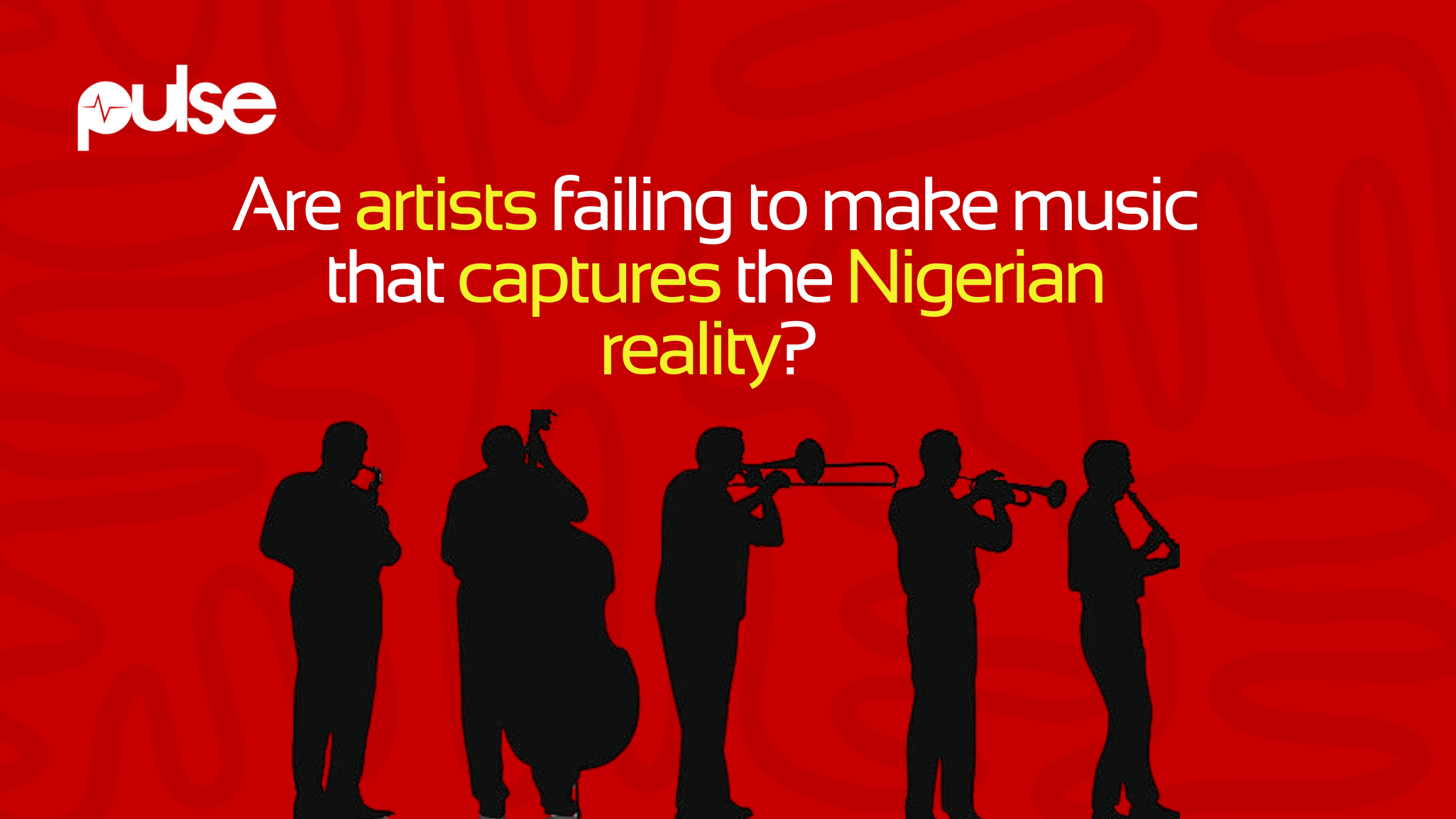
When Dancehall star Buju Banton tackled Afrobeats for lacking substance, many observers and commentators including this writer pointed out how the Jamaican erred in comparing the dominant theme of social justice and political philosophy that shapes Fela Kuti’s Afrobeat to Nigerian pop music.
Buju Banton’s comments, however, motivated by a bit of envy from Afrobeats’ global surge, also carry some elements of truth, at least from an outsider’s perspective. According to Banton, Nigerian pop music hardly captures Nigeria and Africa’s bleak social and economic realities.
This sentiment was echoed by a commentator who in a fan mail to the popular Loose Talk Podcast stated that if one considers the dominant theme of Afrobeats and its merry nature, it hardly gives an outsider an insight into the Nigerian reality. To an outsider, it paints a picture of what many including Nobel laureate Professor Wole Soyinka describe as the happiest people on earth.
Nigeria is currently witnessing its worst economic downturn in generations created by decades of raging corruption and abysmal leadership. However, the nation’s mainstream music hardly reflects this reality. While Nigerian pop music has always been escapist in philosophy and paperweight in its thematic preoccupation, musicians across different eras have crafted records to capture the nation’s socioeconomic realities.
Since 1999, there have been viral hit songs that reflect the state of the nation. Sound Sultan’s ‘Ole (Bush meat)’, Lagbaja’s ‘Suruu lere’, 2Baba’s ‘4 Instance’, Eedris Abdulkareem’s ‘Jaga Jaga’, and African China’s ‘Mr. President’. 2Shot & 9ice’s ‘Make Them Talk’, Mr. Raw & Duncan Mighty’s ‘Ko Gba Dun’, Wande Coal’s ‘Shey Na Like Dis’, Da Grin’s ‘Democracy’, and MI Abaga’s ‘2010’ are some of the many songs that reflect the economic situation of the 2000s and early 2010s.
These songs bring to mind a time when Nigerian artists of varying classes and artistry showcased a level of political consciousness so much that it became customary to dedicate a song in an album to this cause.
A political consciousness that permeated all cadres of artists irrespective of genre. One that had the era-defining rapper Eedris Abdulakareem recording a song that placed him at odds with President Olusegun Obasanjo.
In 2024, musicians hardly craft music that reflects widespread poverty, insecurity, and bad governance. Even in the face of mass migration that has divided families and robbed the country of many of her brightest minds, it’s Sound Sultan’s ‘Motherland’ released nearly 20 years ago that best captures this reality.
This writer, like other observers, wonders why there is a failure or perhaps a reluctance from Nigerian artists to make music that captures the nation’s socioeconomic realities. This article examines this situation.
The massive disconnect between the artists and the average Nigerian
Let’s face it, more than ever before there’s a massive disconnect between the successful artists that shape the mainstream and the Nigerian listeners they service.
The global success of Nigerian pop music opened a massive source of income far greater than what previous generations of artists managed. With wealth at their disposal, many artists are removed from the dire state of the Nigerian economy majority of listeners and their fans are subjected to.
It’s common for artists to spend more time touring the world and living abroad, and only returning to Nigeria to unwind. With this disconnect, it’s unlikely for artists to sing about a Nigerian reality they are largely shielded from unlike in the 2000s and early 2010s when it wasn’t easy for artists to escape the Nigerian reality.
Culture Writer Marv Akintomide shares this sentiment. He opines that these artists live very different lives from the average Nigerian.
“Nigerian music isn’t a reflection of the times that we presently live in. The music now is more of artists’ sexcapades, cash out and net worth, jewelry, and brags of flashy lifestyles that the majority who make up their fanbases cannot afford. This even creates a bigger conversation that bigger artists live lives different from the average Nigerians”.
When one considers that the average B-list artist in the last four to five years can make more money than even some A-list artists managed before then, it provides some context on why they don’t see the need to craft anthems for socioeconomic change.
More than ever before, Nigerian popstars have become politically exposed such that making music that reflects the state of the nation would lead to what many of them consider unwanted scrutiny, especially considering Nigeria’s highly polarising polity.
Street Music Stars and the philosophy of individuality
Historically, Street pop stars are among the prominent voices for socioeconomic change. The dire realities of life in the inner city inspire the likes of African China, Ortisefemi, 9ice, and Timaya to craft tunes to bring attention to the pain of their people.
This communal mindset that drives the older generation of street acts has deteriorated as a new generation discovered crafty ways to economic freedom that remove them from the collective reality of life in the ghetto. This individual socioeconomic emancipation has substituted communal agitation with personal triumph that seeks to inspire rather than demand change.
A different era of music
Since the turn of the decade, music about socioeconomic change has increasingly gone out of style. In 2020, Nigerian pop music made significant inroads in the West—the biggest Nigerian artists have made— creating for the foreign paying market a priority and this has greatly removed them from the Nigerian reality.
With their type of music dominating the scene, it invariably became the benchmark for success, and emerging stars hoping to make the mainstream in the road had to tow similar paths.
Artists like Burna Boy, Falz, Vector, and SDC who are occasionally willing to sing about social justice, do so because it’s central to their artistry as opposed to being a popular demand as it used to be in the 2000s. Perhaps, this is why socially conscious songs are hardly hit records since they are no longer popular among the stars who shape the soundscape.
The duty of the artists to reflect the times
While Nigeria and the 200 million people who live in it could use hit records that capture the mass suffering, they are subjected to familiar escapist music that condemns them to dancing amidst the pain or “suffering and smiling” as Fela Kuti succinctly couched.
Akintomide finds this lack of contextual records a sad reality considering the state of the country.
“As the Nigerian economy gets harsher, there’s hardly any song that captures this period in a bottle. As Nina Simone said, ‘the artists must reflect the times’”.
Perhaps, this disconnect between musicians and consumers accounts for the poor return in Nigerian music in 2024 where hit records are few and far between, and the songs that managed to garner mass attention lacked any significant impact or staying power.
Akintomide thinks while the absence of socially conscious music isn’t directly connected to the poor showing in 2024, he thinks this type of music is relatable and thus has the potential to resonate.
“It’s arguable that songs that reflect times are more relatable. Relatable songs have the potential to connect with more people and go around.”
In the current soundscape, the search for socially conscious music mostly yields results outside the mainstream thanks to the works of artists like the Kutis (Femi, Seun, and Made) and Brymo.
While listeners can continue to look outside the mainstream for music that captures their reality, the absence in the mainstream is indicative of an inability and unwillingness of stars to share the Nigerian reality.
Whether it’s Fela Kuti, Onyeka Onwenu, Daddy Showkey, Lagbaja, Sound Sultan, or Falz, great artists across different eras have documented Nigeria’s socioeconomic reality. The current state of the nation calls for musicians who can share the people’s painful reality and document it for posterity. It calls for those willing to embrace greatness by rising beyond their fortune to reflect the times.
 topnaijanews Stay informed with the latest Nigerian news at your fingertips
topnaijanews Stay informed with the latest Nigerian news at your fingertips
